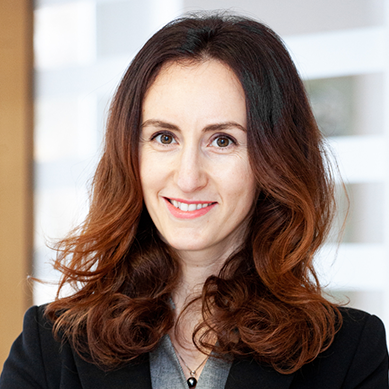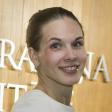Social Sciences
Programme Fact File
Social Sciences
accredited until
Doctoral Degree (PhD) in Social Sciences
Aim
The programme aims to provide opportunities for talented and motivated students to carry out innovative interdisciplinary research in social sciences based on individual research work. The research should address issues that require a multifaceted approach and extend the traditional boundaries of social science disciplines, emphasising a dynamic approach in the fields of law, political science, business, health management, communication, sociology, social anthropology, and social work. The programme offers opportunities for inclusive and sustainable education that contributes to the development of society.
Objectives
- To provide doctoral students with the opportunity to acquire an innovative interdisciplinary and dynamic approach to research, broadening the competences required for scientific research in order to carry out significant, original, and innovative research in the field and to increase scientific excellence at the level of scientific articles published in reputable international journals.
- To provide doctoral students with the opportunity to acquire competences in a perspective of interdisciplinary integration that contributes to the dissemination of knowledge in society at the national and international level and to strengthen transversal skills.
- To provide doctoral students with the opportunity to acquire the competence to independently improve their scientific qualifications in order to implement and manage research and development projects that meet international criteria at a national and international level, including the application of new digital skills in research areas of relevance to the sector.
Skills and Competences
- To analyse and explain current scientific theories and modern research methods;
- To integrate knowledge and competences acquired in interdisciplinary and multidisciplinary education in a complementary way for the implementation of original scientific projects and academic work;
- The ability to independently develop original research in the field, using methodologies and digital technology appropriate to modern scientific requirements;
- To critically evaluate and disseminate results obtained through presentations at conferences and to publish internationally cited scientific articles, thereby contributing to solving problems related to human health and expand the frontiers of knowledge and provide a new understanding of existing knowledge and how it's applied in practice;
- To communicate research activities in the national and international scientific arena through involvement in organisations and consortia, as well as to society at large, including academic work in the fields of medicine, pharmacy, and psychology, in line with modern pedagogical developments, ensuring the integration of research and academic work;
- To independently upgrade scientific qualifications and carry out or manage research or development projects in companies, institutions, and organisations that meet international criteria in the field;
- To continuously develop communication, reasoning, collaboration, problem-solving, digital, and other widely used skills essential for the development of interdisciplinary or multidisciplinary research.
Sub-programmes
Communication Culture and Multimedia
Business Management and Economics
Social Anthropology, Sociology, Social Work
Syllabus
- Compulsory research component
- Independent original research, participation in conferences, preparation and publication of publications, participation in scientific projects;
- Publication in an internationally peer-reviewed scientific journal, or acceptance for publication in a journal listed in such databases as Scopus, Web of Science, ERIH PLUS;
- Publication in a peer-reviewed scientific journal in Latvia, or confirmation of acceptance for publication in journals included in such databases as Scopus, Web of Science, ERIH PLUS;
- Publication of the full text of the proceedings of an international conference or congress (at least three pages);
- Oral report or presentation on the topic of the thesis at an international congress or conference;
- Oral report or presentation on the topic of the thesis at a local congress or conference;
- Abstract for an international congress, conference or seminar;
- Abstract at a local congress or seminar;
- Scientific monograph (sole author);
- A section in a scientific monograph;
- Research work abroad.
By the end of your studies, you must have at least two citable publications in internationally reviewed scientific journals, or one citable publication in an internationally reviewed scientific journal (Scopus, Web of Science, ERIH PLUS), or one monograph.
- Compulsory education component
- Philosophy of Science, Research Principles, Methods, Methodology and Practice in Social Sciences from an Interdisciplinary Research Perspective
- Learning and Teaching in Higher Education and Science
- Independent Scientific Research Work, 1
- Scientific Writing and Scientific Communication, DN_205
- Independent Scientific Research Work, 2
- Doctoral Examination in a Foreign Language
- Independent Teaching Activity, 1
- Independent Scientific Research Work, 3
- Doctoral Examination in the Field and Sub-Field of Science
- Independent Teaching Activity, 2
- Independent Scientific Research Work, 4
- Independent Scientific Research Work, 5
- Independent Scientific Research Work, 6
- Restricted elective component (courses to be chosen in the amount of 6–8 CP)*
* Courses from the restricted component may be replaced by free elective courses up to a maximum of 2 CP
- Conceptual Approaches to Innovative Healthcare Organisation
- Civil Defence and Environmental Protection
- Mathematical Statistical Methods in Social Sciences
- English in Social Sciences: Drafting a Scientific Manuscript
- Approaches and Current Topics in the Analysis of International Relations and Political Science
- Topical Issues in Communication Theory and Research Methodology
- Topical Issues in Social Anthropology, Sociology, or Social Work
- Socio-Economic Developments in Health Management, Business Management, and Economics
- Law in the Focus of Social Processes – Contemporary Problems of Interpretability of the Legal System
- Current Topics in Health Management Theory, Practice, and Research
- Elective component (courses to be chosen in the amount of 0–2 CP)**
** Free elective courses may be replaced by restricted courses up to a maximum of 2 CP
The free elective component (C) offers elective courses corresponding to level 8 of doctoral studies.
Admission Regulations for the Academic Year 2025/2026
Documents
Doctoral study programme Social Sciences (DSZ) course list for the 2026/2027 academic year
RSU's interdisciplinary Social Sciences doctoral programme has been developed taking international best practices into account. It places interdisciplinary research at the forefront of what is in demand today. The aim of the programme is to provide motivated PhD students with the opportunity to conduct innovative interdisciplinary research in the social sciences based on individual research work, as well as to use an interdisciplinary approach to solve complex social problems and to develop scientifically sound solutions.
The programme offers a competitive education focused on excellence in research at the intersection of disciplines such as law, political science, communication culture and media, business management and economics, social anthropology, social work or health management.
Thanks to our good cooperation with national and international institutions, the programme offers the opportunity to participate in industrial research and other research projects at both the national and international level, under the guidance of experienced researchers.
RSU is a research university, so we provide our PhD students with the support they need to carry out top-level interdisciplinary research. We are proud of every PhD student who achieves their research goals, becomes an international researcher or expert and a professional in their field.
Karina Palkova, Dean, Faculty of Social Sciences

Project nr. 8.2.1.0/18/A/014 Reducing study programme fragmentation and promoting study internationalisation at Rīga Stradiņš University
Head of Programme
Academic Staff, Faculty of Social Sciences
Lead researcher, scientific project manager, China Studies Centre
Director, Social Sciences doctoral programme, Department of Doctoral Studies





